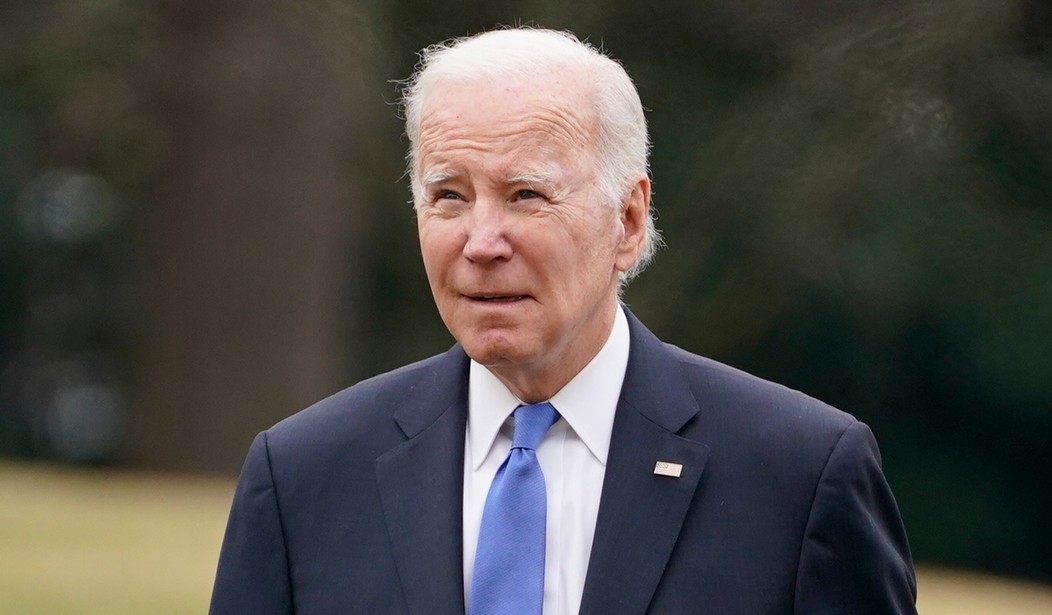President Biden is busy touting his party's signature legislation: the Inflation Reduction Act.
He and fellow Democrats are particularly pleased with the IRA's drug-pricing provisions, which will impose price caps on a range of medicines covered by Medicare. But just as Democrats laud the supposed benefits of the IRA, they're ignoring its undeniable negative impacts.
The new law's "negotiated" drug prices -- which are simply a euphemism for government price controls -- won't take effect until 2026. But they're already forcing American biotechnology companies, especially start-ups, to slash investment in research and development.
The Congressional Budget Office estimates these price controls will reduce federal drug spending by nearly $100 billion over the next 10 years. That massive drop in revenue will leave firms with less to spend on future research.
It costs more than $2 billion, on average, to develop a single new drug, and biopharmaceutical companies devote about 25% of their revenue to research and development. No other research-intensive industry comes close to this level of investment.
We're already seeing the IRA's impact play out. Bristol-Myers Squibb, for example, recently canceled research on several cancer treatments and other drug programs due to IRA measures, the company's CEO told the Financial Times. Novartis recently warned that some of its most promising research areas are under threat because of the IRA.
These industry giants have the means to survive the new drug-price provisions. But many of our nation's smaller biotech companies -- which develop more than half of all new medicines -- don't have deep pockets. Some have already announced cuts to research and development. For example, Alnylam Pharmaceuticals cited the IRA as the reason it's halting trials on a possible treatment for a rare genetic eye disease.
Recommended
Such decisions are devastating for patients, who are watching potential pharmaceutical breakthroughs evaporate before their eyes. Many studies have looked at the negative effect of drug-price controls on innovation, and suggest that the IRA provisions will result in more than 100 fewer new drugs coming to market over the next two decades.
The legislators who wrote the IRA tried to soften the law's impact on smaller businesses: They preemptively ruled out price controls on drugs that bring in over 80% of a company's Medicare revenue yet account for less than 1% of Medicare Part B or D spending. The catch is that very few small biotech companies will be able to meet those strict requirements.
Steve Potts, the founder of two small biotech companies -- Serpass Biologics and Redrock Science -- didn't mince words when explaining the law's implications for his work. "It's forcing me to choose to develop a drug for kids instead of a drug for their grandparents, when I could be developing both," he wrote last fall.
The Inflation Reduction Act also makes it more challenging for start-ups and smaller companies to forge partnerships with large firms, which have the resources and capacity needed for wide reach. Moderna, for example -- a mid-size business with just 830 employees before the pandemic -- had to collaborate with AstraZeneca and Merck to bring its mRNA-based Covid-19 vaccine to market. Similarly, tiny Ridgeback Biotherapeutics worked with industry giant Merck to bring out Covid-19 treatment molnupiravir.
By slashing the potential for revenue at both large and small firms, the IRA price caps throw this model into question. Small companies will increasingly have to go it alone, and sacrifice discoveries that might have been possible with support from an industry partner.
The IRA provisions will also force more biotech companies to downsize or close their doors for good, resulting in economic pain for biotech hubs across the country. At least 13 small biotech companies have already announced layoffs this year.
Now President Biden wants to make matters even worse by significantly expanding the government's new price-setting powers. His recently released budget proposal would subject many more medicines to government price controls, potentially leading to an even bigger drop in biotech firms' revenue than the IRA alone will bring about.
President Biden also hopes to severely curtail how long newly launched drugs are exempt from price-setting. Under the IRA, biologic drugs are protected from price controls for 13 years, while small molecule drugs have 9 years. Recent reporting indicates that the new budget would slash exclusivity to 5 years for all drugs.
In short, Biden administration officials seem to have identified the most harmful, anti-R&D policies in the IRA and duplicated them in the new budget.
America's biotech ecosystem is at a critical juncture, and not just because of the Inflation Reduction Act and the threat of the president's budget proposal. The recent collapse of Silicon Valley Bank has given rise to a wave of uncertainty in the biotech investment space. Around half of the country's venture-backed life sciences companies banked with SVB.
The federal government has promised that all of SVB's clients will be made whole, and we have every reason to believe them. Nonetheless, it's only natural that the bank's failure will give pause to biotech start-ups and their investors in the future.
SVB's sudden implosion is a reminder of the global financial system's unpredictability. Adding to this uncertainty is the last thing we should be doing. Countless life-saving treatments and cures are at stake.
























Join the conversation as a VIP Member